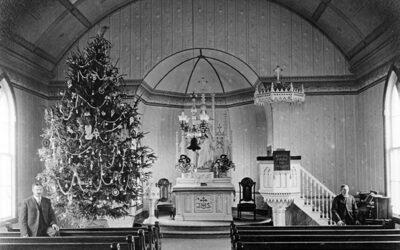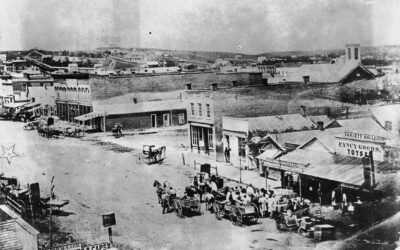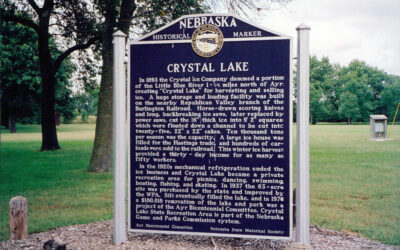St. Nicholas Magazine was perhaps the best known and one of the most highly regarded juvenile publications of the late nineteenth and early twentieth centuries. It was established in 1873 by the Scribner Company of Boston under the editorship of Mary Mapes Dodge. During St. Nicholas‘s “golden age,” 1873 to 1905, the thirty years under editor Dodge, the magazine attracted the most respected authors of the day, and boasted a juvenile readership which spanned the nation geographically and culturally. One of its regular features was the St. Nicholas Letter-Box, which included children’s letters to the magazine. One group of four, published in St. Nicholas in September 1880, was written by four sisters from Nebraska’s Omaha agency: Susette, Rosalie, Marguerite, and Susan La Flesche. (Nebraska History, Winter 1981)
The letters were written in 1877, judging by the declared ages of two of the girls, yet they did not appear in the magazine until three years later. What prompted the sisters to write to St. Nicholas in the first place, and why the Letter-Box chose to publish them in the fall of 1880, are matters for speculation. It’s possible that Helen Hunt Jackson, a longtime contributor and friend of St. Nicholas, who had befriended Susette “Bright Eyes” La Flesche in November of 1879 during Susette’s speaking tour of the East, conveyed them to the magazine. That Mary Mapes Dodge knew of Susette and her cause is undeniable. The fact that, though in theory the Letter-Box was for children, the editor allowed a letter from Susette, then in her twenties, to accompany the letters of her younger sisters, shows a social consciousness on the part of the editor and her periodical.
Perhaps the darkest letter was written by fifteen-year-old Marguerite, who declared frankly, “Sometimes I am sorry that the white people ever came to America. What nice times we used to have before we were old enough to go to school, for then father [Joseph La Flesche] used to take us on the buffalo hunt. How glad we used to be when the men were bringing in the buffaloes they had killed! I do wish we could go again. Whatever the white men take away from us, they cannot take away the love of roaming. I cannot write anything exciting, as nothing hardly ever happens, unless a number of Senators and Congressmen happen to come along and stir us up.”



